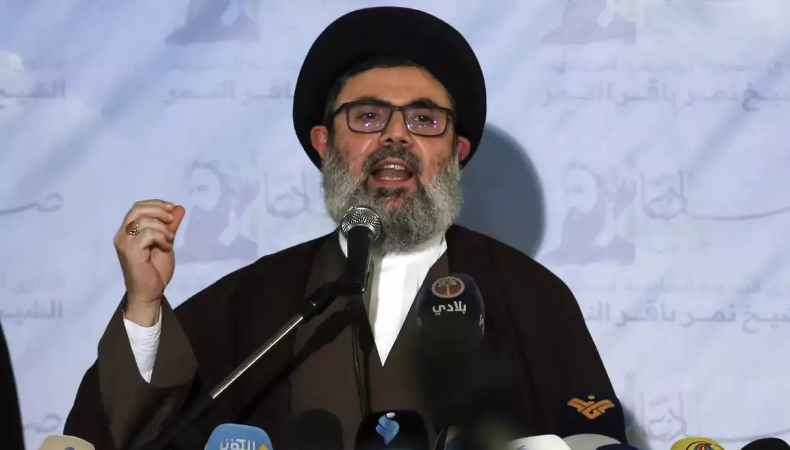Israeli Airstrike Kills Hashem Safieddine, Potential Successor to Hezbollah Leadership

Confirmed slain in an Israeli airstrike on Tuesday amid a stunning Middle East escalation of tensions was Hashem Safieddine, a strong cleric inside Hezbollah and a major candidate expected to succeed late Hassan Nasrallah. Shortly following Nasrallah’s September murder during another Israeli military operation, this strike gravely compromises Hezbollah’s leadership structure. Focusing on high-ranking officials highlights the mounting conflict between Israel and Hezbollah in perspective of a persistent regional issue.
Targeted for an attack in southern Beirut, Safieddine was declared dead by the Israeli army. Particularly in view of the growing tensions that have evolved over recent months, this operation fits Israel’s bigger scheme to eradicate Hezbollah’s command and control capability. Apart from killing Safieddine, Israeli officials claim that the airstrike claimed the life of 25 more Hezbollah leaders. This targeting reveals Israel’s deliberate attempt to lower the operational capacity and leadership within ongoing war.
Although the Israeli military says the strike was successful, Hezbollah did not instantly confirm Safieddine’s death. This stillness catches the uncertainty and volatility that normally surround such conflicts, in which case knowledge can be closely controlled or manipulated for political purposes. Beirut’s suburb where Safieddine purportedly died saw more airstrikes following the incident, one of which leveled a structure Israel claimed to be hosting Hezbollah operations. This ongoing military pressure reveals Israel’s intention to neutralize allegedly threatening Hezbollah.
Better Background for the Conflict
Rising tensions following the execution of important Hamas commander Yahya Sinwar, the organizer of the planned coordinated strikes against Israel on October 7, resulted in the airstrike on Safieddine. Originally, Sinwar’s passing sparked calls for a ceasefire all around since foreign leaders saw an opportunity for diplomacy and de-escalation. Though Hezbollah argues that Sinwar’s death marks the beginning of a new “escalating” phase in the war, Israel and Hezbollah have since clearly set their positions. This shift leans toward more conflict than toward diplomatic remedies.
According to principal Hezbollah patron Iran, Sinwar is an “inspiration” for the party; so, his death will not only undermine Hezbollah’s will but also boost its will for reprisal. This dynamic emphasizes the complexity of the interactions among various regional actors as well as the likelihood of a larger general conflict involving several groups and national interests. As the fighting continues, Israeli forces are keeping up their ground operations in southern Lebanon and launching military strikes in northern Gaza. Concerned about the escalating circumstances, humanitarian organizations have issued urgent warnings alerting of a possible humanitarian calamity coming from the continued military offensives.
Effects on Regional Harmony
Apart from the passing of other high-ranking Hezbollah figures, the assassination of Hashem Safieddine signals a turning point in the ongoing conflict between Israel and Hezbollah. The planned strikes highlight the challenges both sides have handling a fast shifting military battlefield. Since Hezbollah loses leaders constantly, the effects on its operational capacity and strategic orientation are yet unknown. Furthermore, altering Hezbollah’s long-term objectives and tactical approach might be the likely emergence of fresh leadership inside the organization.
Moreover, the continuous bloodshed raises questions regarding the broader regional stability, particularly with relation to the involvement of Iran’s and other state players. Rising tensions increase the possibility of more broad regional war, which draws additional countries and non-governmental parties. The problem throws the geopolitical scene since nations negotiate their stances on support for either Israel or Hezbollah while also managing domestic and international requests for humanitarian assistance.
All things considered, the murder of Hashem Safieddine signals a turning point in the ongoing conflict between Israel and Hezbollah combined with a bigger background of violence and instability in the region. Israel’s intentional desire to degrade Hezbollah’s leadership and heighten hostilities shows in the targeted strikes on high-ranking officials. Given both sides seem to be firmly anchored in their respective positions, the likelihood for meaningful peace talks and de-escalation gets considerably more improbable. Given the growing humanitarian situation and shifting regional dynamics, which underlines the imminent need of diplomatic steps to solve the crisis and its wide ramifications, the likelihood of greater escalation looms huge.




